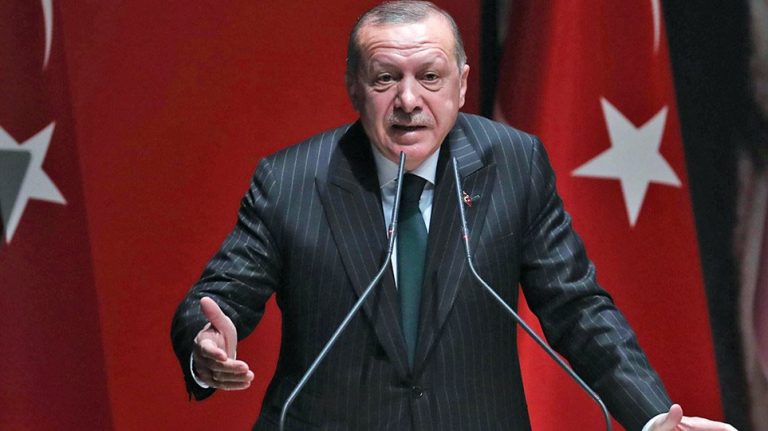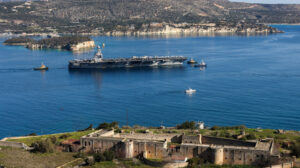Turkey is currently involved in quite a few international military conflicts — both against its own neighbors such as Greece, Armenia, Iraq, Syria and Cyprus, and against other nations such as Libya and Yemen. These actions by Turkey suggest that Turkey’s foreign policy is increasingly destabilizing not only several nations, but the region as well.
In addition, the Erdogan regime has been militarily targeting Syria and Iraq, sending its Syrian mercenaries to Libya to seize Libyan oil and continuing, as usual, to bully Greece. Turkey’s regime is also now provoking ongoing violence between Armenia and Azerbaijan.
Since July 12, Azerbaijan has launched a series of cross-border attacks against Armenia’s northern Tavush region in skirmishes that have resulted in the deaths of at least four Armenian soldiers and 12 Azerbaijani ones. After Azerbaijan threatened to launch missile attacks on Armenia’s Metsamor nuclear plant on July 16, Turkey offered military assistance to Azerbaijan.
“Our armed unmanned aerial vehicles, ammunition and missiles with our experience, technology and capabilities are at Azerbaijan’s service,” said İsmail Demir, the head of Presidency of Defense Industries, an affiliate of the Turkish Presidency.
One of Turkey’s main targets also seems to be Greece. The Turkish military is targeting Greek territorial waters yet again. The Greek newspaper Kathimerini reported:
“There have been concerns over a possible Turkish intervention in the East Med in a bid to prevent an agreement on the delineation of an exclusive economic zone (EEZ) between Greece and Egypt which is currently being discussed between officials of the two countries.”
Armed black militia in America issues threat to build “its own nation”
Crisis in the Aegean: Ready for everything despite the de-escalation in Kastelorizo
Turkey’s choice of names for its gas exploration ships are also a giveaway. The name of the main ship that Turkey is using for seismic “surveys” of the Greek continental shelf is Oruç Reis, (1474-1518), an admiral of the Ottoman Empire who often raided the coasts of Italy and the islands of the Mediterranean that were still controlled by Christian powers. Other exploration and drilling vessels Turkey uses or is planning to use in Greece’s territorial waters are named after Ottoman sultans who targeted Cyprus and Greece in bloody military invasions. These include the drilling ship Fatih “the conqueror” or Ottoman Sultan Mehmed II, who invaded Constantinople in 1453; the drilling ship Yavuz, “the resolute”, or Sultan Selim I, who headed the Ottoman Empire during the invasion of Cyprus in 1571; and Kanuni, “the lawgiver” or Sultan Suleiman, who invaded parts of eastern Europe as well as the Greek island of Rhodes.
Read more: Gatestone Institute
Ask me anything
Explore related questions





